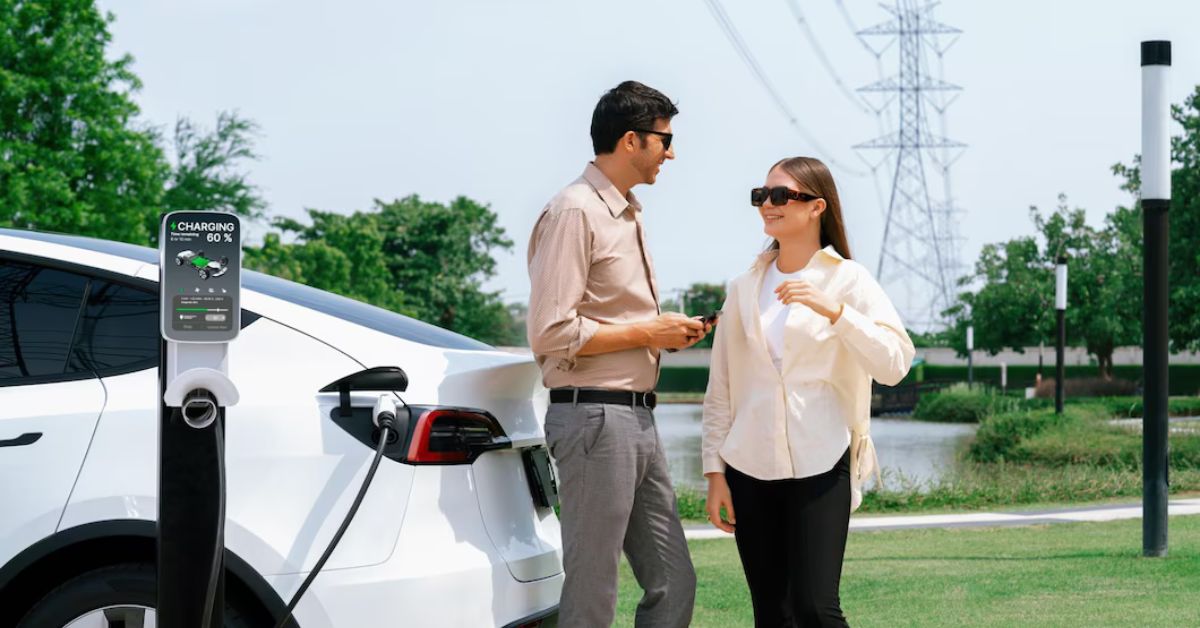Importance of EV Charging Infrastructure
Electric vehicles (EVs) are rapidly gaining popularity, and with this rise comes the pressing need for efficient and accessible charging infrastructure. For commercial property owners, this means adapting to meet the needs of EV drivers. Investing in a commercial EV charging station can attract customers who require charging facilities, enhancing foot traffic and business opportunities. The installation of such stations not only demonstrates a commitment to sustainability but also indicates a forward-thinking approach that can set a business apart from its competitors.
As EV ownership increases, the demand for convenient charging options near workplaces, shopping centers, and recreational facilities grows. By providing charging stations, property owners not only contribute to environmental sustainability but also create an additional revenue stream and improve customer satisfaction. This infrastructure upgrade can be a competitive differentiator as more consumers seek businesses that support green initiatives and provide the amenities they need.
Types of EV Charging Stations
Various EV charging stations are available, each suitable for different commercial needs. Gaining knowledge about these choices can assist in selecting the optimal solution for your real estate:
- Level 1 Chargers: These basic chargers use a standard electrical outlet, making them ideal for areas where vehicles will be parked for long periods. Although slower, these chargers are cost-effective for overnight or extended parking scenarios.
- Level 2 Chargers: More potent than Level 1, they require a 240V outlet and can charge a vehicle in a few hours, making them suitable for locations with moderate turnovers, such as workplaces or shopping centers. Installation costs are higher, but the charging speed is significantly improved.
- DC Fast Chargers: These are the fastest option, charging a vehicle to 80% in about 30 minutes. They are best suited for high-traffic areas like highway rest stops or urban commercial zones where quick turnaround is essential. The initial investment is higher, but the convenience factor can attract many users.
Benefits of EV Charging Stations
Integrating EV charging infrastructure into your commercial property comes with numerous benefits:
- It helps reduce carbon emissions, significantly contributing to environmental conservation efforts.
- Enhancing the appeal of your property has the potential to increase its value for potential renters and customers.
- Installing charging stations can enhance your company’s green image, attracting eco-conscious consumers who prioritize sustainable practices.
Another important benefit is the possibility of higher income. Charging stations can attract EV owners who may spend more time at your location, shopping, dining, or utilizing other services offered. This extended presence often translates directly into higher sales. Additionally, some businesses charge a fee for using the stations, providing a direct return on investment.
Steps to Implement EV Charging Solutions
Implementing EV charging stations may seem daunting, but breaking it down into manageable steps can simplify the process:
- Assess Demand: Identify the demand for EV charging among your customers and employees. Conducting surveys or feasibility studies can provide invaluable insights into how many chargers are needed and which type will be most effective.
- Choose the Right Equipment: Based on demand and your budget, select the type and quantity of chargers. Consider the installation’s future scalability to accommodate growth in EV ownership.
- Plan Location: Decide on strategic locations for placing the chargers to maximize accessibility and convenience. High-visibility areas with existing parking spaces are often ideal, as they ensure ease of use for EV drivers.
- Install Infrastructure: Hire a certified electrician to install the chargers and ensure they meet all safety standards. Compliance with local regulations is crucial for both safety and legal reasons. Ensure that the installation also provides for future upgrades and scalability.
- Promote Your Stations: Use effective marketing strategies to inform customers about the new charging stations. Use social media, newsletters, and on-site signage to spread the word and encourage use. Consider partnering with electric vehicle organizations or local community groups to increase awareness.
Maintaining Your EV Charging Stations
Regular maintenance is critical to ensuring the longevity and reliability of your EV charging stations. Schedule periodic inspections and update the software to keep the chargers in optimal condition. Train your staff to assist users and address any technical issues promptly. Routine checks can prevent minor issues from escalating into significant problems, ensuring a seamless user experience.
Maintenance tasks can range from simple checks of the physical connections and cleanliness to more complex issues, such as software updates and troubleshooting hardware faults. A maintenance log can help track each station’s performance and service history, providing valuable data for future upgrades or expansions.
Future of EV Charging
The future of EV charging looks promising, with technological advancements making chargers faster and more efficient. Innovations such as wireless charging and vehicle-to-grid capabilities are on the horizon, potentially revolutionizing how we recharge our electric vehicles. Staying informed and adaptable will allow you to stay ahead of the curve and continue to meet the evolving needs of EV drivers.
Moreover, as government regulations and incentives increasingly favor electric vehicles, investing in EV infrastructure today can position your property as a leader in sustainable practices, attracting a growing market segment that prioritizes environmental responsibility. Implementing state-of-the-art charging solutions can also future-proof your property, ensuring it remains relevant as EV technology develops.
You might also like : Sukıtır Electric Scooters










